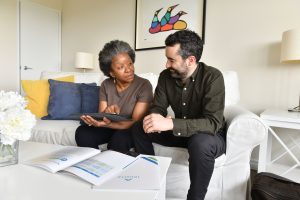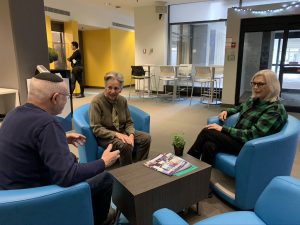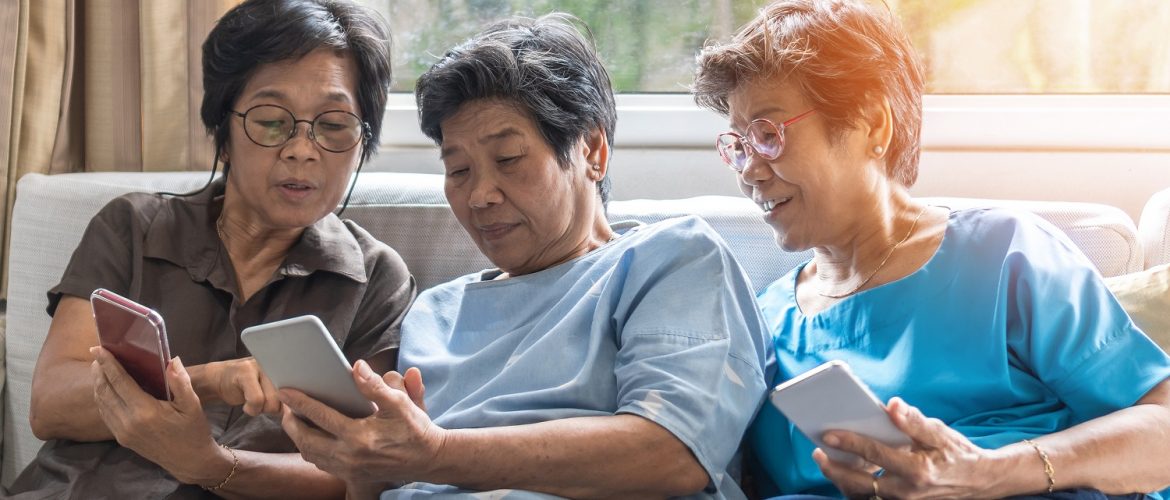This article was first published in Baycrest’s BrainMatters Magazine.
Technology is transforming our everyday lives. We can travel to another country in a matter of hours, pay for an item with the touch of a button, and access a world of information without lifting a finger. It’s even enhancing the way we age. Thanks to innovations like medication reminder apps and virtual fall detection systems, older adults can age confidently and fearlessly in the setting best suited for them.
There is a wealth of age-related technology (agetech for short) all around us. But the best products are designed with the needs and values of older adults and their caregivers in mind. Without the input of older adults, even the most creative ideas can miss the mark when it comes to successfully meeting the needs of potential users.

Jonathan Davis, Founder of CABHI-supported Trualta, with caregiver end-user.
It can be challenging for innovators to access the opinions of their target audience. To bridge this gap, the Centre for Aging + Brain Health Innovation (CABHI), powered by Baycrest, is bringing innovators and older adults together to co-design technology and practical solutions that aim to improve quality of life for older adults, people living with dementia, and their caregivers.
Helping to drive this mission forward is CABHI’s Seniors Advisory Panel (SAP) – a community of older adults and caregivers that provide advice and support to CABHI-funded aging and brain health innovations.
Dr. Shoshana Hahn-Goldberg, a scientist at UHN OpenLab, worked with the SAP while developing a virtual community care hub to support seniors aging at home. The SAP helped Dr. Hahn-Goldberg understand older adults’ perspectives on public and private spaces, social connectedness, and remote healthcare resources.
“Over the last four years the SAP has reviewed a range of innovations – from patient information management systems to monitoring devices used to keep older adults safe,” says SAP member Walter Seaton.

Members from CABHI’s SAP.
In March 2021, CABHI expanded their co-design model to create Leap, a diverse community of older adults and caregivers interested in sharing their lived experiences with innovators. Through collaborative feedback sessions, targeted focus groups, and design sprints, Leap members can test emerging agetech and provide feedback to innovators about the usability of their products.
Leap recognizes that all older adults possess unique insights that can enrich the innovation process and help innovators identify which pain points to address.
“By appreciating the broader human context and deeply understanding the needs of their target audience, innovators can create relevant and meaningful products,” explains Bianca Stern, Executive Director, Health Innovations at CABHI.
COVID-19 has accelerated the development of agetech solutions aimed at improving quality of life, reducing social isolation, and maintaining cognitive and mental health among older adults living at home and in long-term care centres. The time for seniors to access these innovations is now. By participating in co-design sessions, older adults can feel empowered to advocate for their individual healthcare needs and shape their present and future aging journeys.
To join or learn more about Leap, please visit cabhi.com/leap


